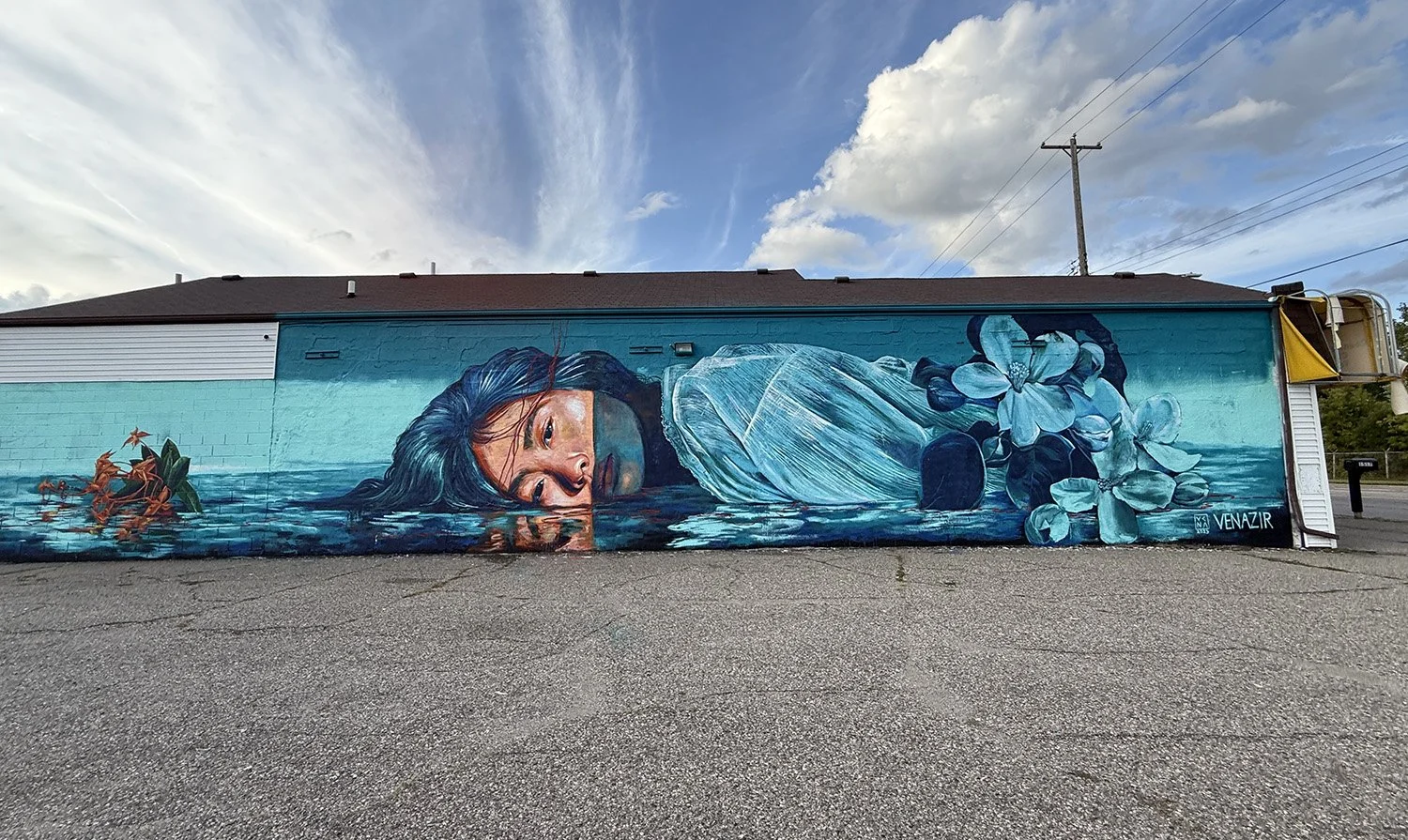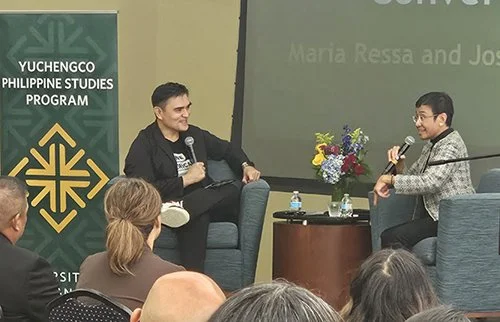War, Family, Faith, and Pageantry
/We have quite a varied lineup this week:
In time for Veteran's Day in the US yesterday, a feature on the children's book, The Horse Soldier: A Wartime Secret by Sandie Oreta Gillis. It is the story of Lt. Edwin Price Ramsey, who led the last horse-mounted cavalry charge in U.S. military history during World War II. It is also the story of the author's grandparents who risked sheltering Ramsey in their house in Pangasinan. An inspirational story of courage during war but told for children. Leodivico Padua Masuli writes about the making of the book.
An American actor and scriptwriter married a Fil-Am movie producer and made a movie called "One Big Happy Family." Lisa Jenner, whose husband is Dean Devlin, found rich material in Filipino family dynamics that, along with co-star Dante Basco, made this 2025 comedy movie a joy to watch. PF's Los Angeles correspondent Anthony Maddela gives us a glimpse.
From North Texas, Jocelyn Alvarez Allgood introduces Yvonne Yngson Gochangco, the reigning Ginang Filipinas America, whose academic and career credentials -- a master's degree in public health, a certified nurse anesthetist -- surpass her 2025 beauty title.
A sobering testimony: when software engineer Michelle Moreno-Apolo was diagnosed with breast cancer, she dug deep into her Catholic faith, instilled in her by her mother, to navigate the harrowing journey of treatments. She shares with us her story of faith.
*****
Last Saturday, November 8, the Maria Elena Yuchengco Philippine Studies Program of the University of San Francisco commemorated its 25th anniversary with one of the most anticipated and well attended events in the city: a conversation with Maria Ressa, veteran journalist and the Philippines' second Nobel Prize winner. Moderating the discussion was another Fil-Am celebrity -- Pulitzer-prize winner Jose Antonio Vargas. Read all about the event here.
Jose Antonio Vargas leads the Q&A with Maria Ressa
Congratulations to PF regular contributor of Fil-Am history stories Alex Fabros, Jr. for winning 2nd place in the International Affairs category at the 2025 American Community Media Awards (there was a first place tie between Kalynh Ngo of Viet Bao and Shahbod Noori of Tehran Magazine). Here’s the winning story: How Vietnam War Vets Wrestled with the Shadows of the Toxic Orange Mist
Alex Fabros, Jr. with wife Lorraine Wong at the American Community Media Awards last November 7, 2025 in Oakland, CA.
[Partner] FilVetRep Day
[Read It Again]
The General At Ease by Gemma Nemenzo
The Boogie Woogie Boys by Alex S. Fabros, Jr.
[Video of the Week]
In The Know
Sometimes heroes are in a small boat with a salbabida
https://www.sunstar.com.ph/cebu/sometimes-heroes-are-in-a-small-boat-with-a-salbabida
Kaya Founders Secures $25 Million in Final Close to Back PH Startups
https://www.esquiremag.ph/money/industry/kaya-founders-bags-25-m-in-final-close-of-fund-
Still recovering from #FilipinoAmericanHistoryMonth, but we wanted to share this news story covering the unveiling of Dr. Dawn Bohulano’s Portrait at Delta College






